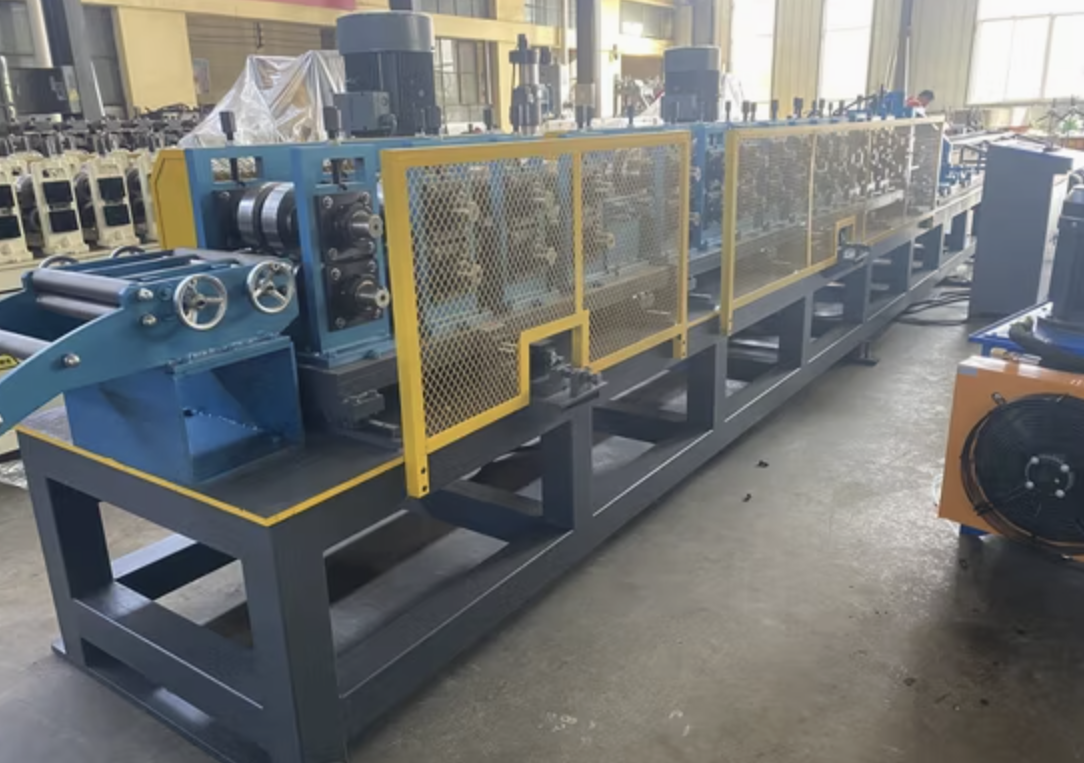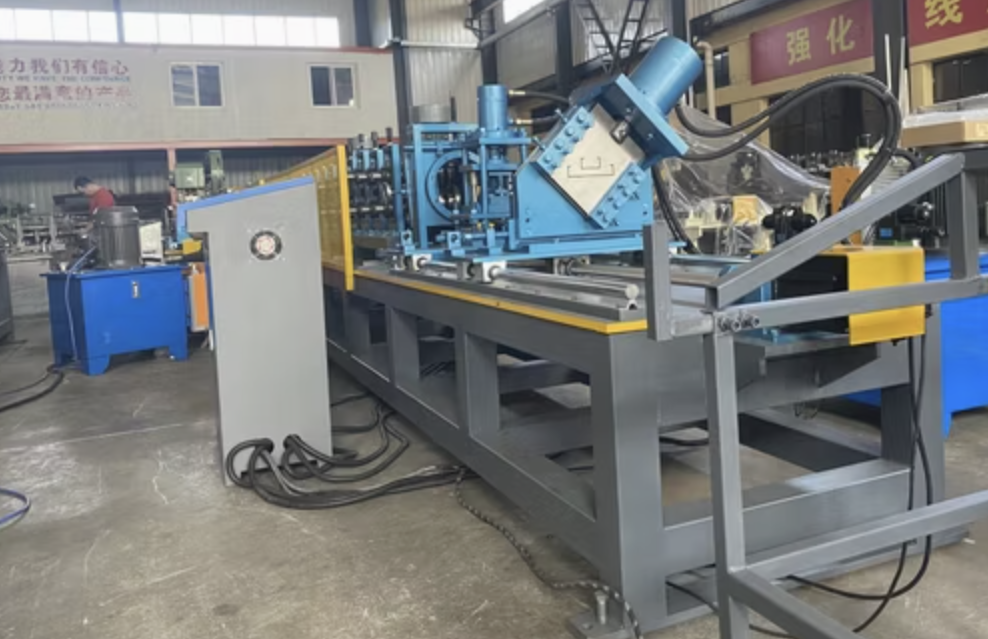To express an interest in this machine please submit the form below.

Not Sure What Machine You Need?
Select Your Profile, We'll Match It
Choose your desired profile drawing, and let Machine Matcher connect you with the best roll forming machine tailored to your needs.
Browse Profiles


A steel frame roll forming machine is an industrial equipment designed to shape steel coils or sheets into precise structural profiles used for framing in construction and various other applications. These machines are crucial for manufacturing steel components like studs, tracks, joists, and purlins, commonly found in the construction industry. Steel framing is renowned for its durability, fire resistance, and versatility, making roll forming machines an ideal choice for high-volume production.
Steel frame roll forming machines take flat steel strips, often in coil form, and transform them into specified structural profiles through a continuous bending and shaping process. The machine features a series of rollers that gradually form the steel into the desired shape. The final profile's geometry is determined by the configuration of these rollers, designed to accommodate specific dimensions and shapes per project requirements. Advanced steel frame roll forming machines are highly automated, allowing efficient and accurate production while minimizing human error.
The machine is commonly used to produce components for residential and commercial buildings, including light steel framing, partitions, roofing frames, ceiling channels, and more.
Q1: What is the maximum thickness of steel that a steel frame roll forming machine can handle?
A: Typically, steel frame roll forming machines can handle steel thicknesses between 0.8mm and 2.0mm, but this depends on the specific model. Some machines can be customized to handle thicker materials if required.
Q2: How fast can a steel frame roll forming machine produce profiles?
A: Machine speeds vary by model and material but generally range between 10 and 20 meters per minute.
Q3: What safety features are included with the machine?
A: Most machines come with full safety enclosures, emergency stop buttons, light curtains, and sensors to protect operators during operation.
Q4: Can one machine produce multiple types of profiles?
A: Yes, many steel frame roll forming machines are equipped with adjustable rollers and PLC systems, enabling quick changes between different profile settings.
Q5: What types of steel are compatible with the machine?
A: These machines can process various types of steel, including galvanized steel, cold-rolled steel, and stainless steel, depending on the intended application.
Q6: Is it possible to integrate this machine with other automation systems?
A: Yes, advanced steel frame roll forming machines can integrate with factory automation systems, including stackers, uncoilers, and remote monitoring systems, to enhance production efficiency.
Q7: How often does the machine require maintenance?
A: Routine maintenance is recommended monthly, with a thorough inspection every six months. Regular lubrication and cleaning help prevent downtime and maintain productivity.
Q8: Can this machine be customized to produce specific profiles?
A: Yes, customization options are available, including roller modifications and software adjustments to create unique profiles tailored to project requirements.
Copyright 2026 © Machine Matcher.